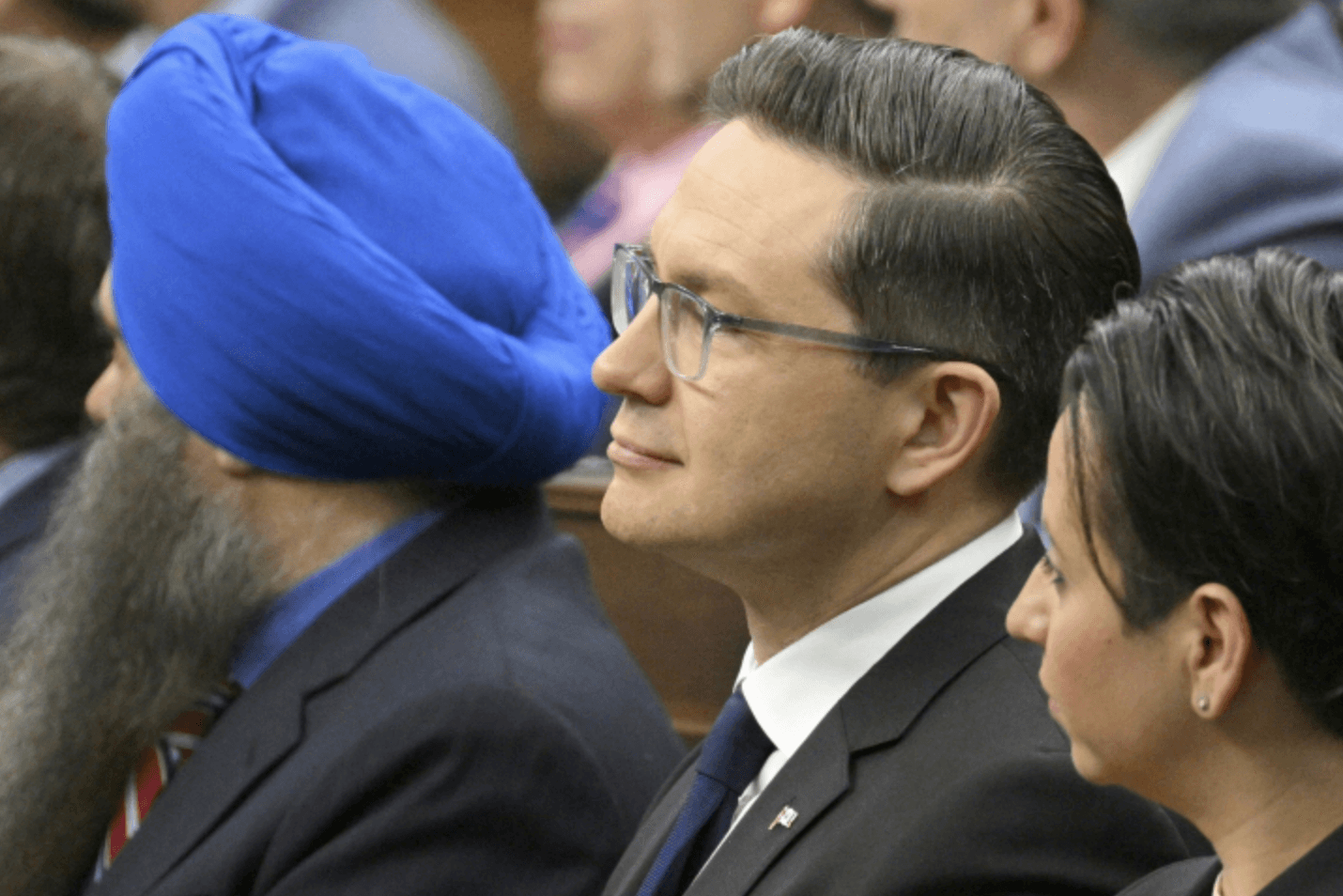Western Right-Wing Surge Likely To Continue in 2025
Other than the United Kingdom, where the Labour Party won 411 of the 650 members of Parliament, 2024 was a year of wins for right-wing parties across the Western world. In America, Republicans won the House, Senate, and presidency. In Europe, right-wing parties made gains in the European Parliament elections and federal elections in France and Austria. Current polling and early 2025 political developments suggest that this year may continue the trend of right-wing parties winning across the West.
The news closest to home for Americans following elections abroad comes from Canada, where Prime Minister Justin Trudeau announced he will resign as leader of the Liberal Party and as prime minister once his party selects a new leader through a “robust, nationwide competitive process.”
This comes as the Conservatives in Canada, led by Pierre Poilievre, lead by significant margins in recent polls. One Ipsos poll, taken from Dec. 19-20 with 1,001 Canadians, found that the Conservative Party led by 25 points nationwide, leading the Liberals 45%-20%. In the last Canadian federal elections in 2021, the Liberals won 160 seats, compared to the Conservatives’ 119. The other biggest party, the New Democratic Party, a party to the left of the Liberals, marginally increased its vote share in the poll, receiving 17.8% in 2021 and 20% in the latest poll.
Because Canadian House of Commons candidates are chosen at the district level, current statistical models made by 338Canada, based on polling and demographic data, currently predict the Conservative Party to win 236 seats. The party only needs to win 172 to secure a majority in the House of Commons. The Liberal and NDP parties trail significantly, with only 35 and 25 seats predicted, respectively. The federal elections are scheduled to be held on Oct. 20, 2025.
Another election where right-wing parties are predicted to pick up seats is Germany’s February federal election, which is likely to break the current coalition of the Social Democrats, who received 25.7% of the vote in the 2021 election; the Green Party, who received 14.7%; and the Free Democratic Party, who received 11.4% of the vote. In the last 2021 election, these parties earned 413 seats combined, enough for a majority in the Bundestag of 630 seats.
After the 2025 elections, however, this coalition of the SPD, Greens, and FDP will no longer be sufficient to form a majority, according to current polls. The latest poll from polling firm INSA, taken from Jan. 3-6, found that the center-right Christian Democratic Union is polling at 31%, and the other right-wing party, the Alternative for Germany, is polling at 21.5%, while the SPD and Greens are at 15.5% and 13.5%, respectively. If these voting percentages hold until election day, this would represent a 7% increase in the vote share for the CDU and a doubling of support for the AfD, which received 10.4% of the vote share in the previous Bundestag election.
Despite the likelihood of the CDU and AfD earning enough support to create a coalition after the February elections, the CDU has a standing policy of not joining in a coalition with the AfD. Markus Söder, who has served as the minister-president of the German state of Bavaria and is a member of the Christian Social Union, the sister party to the Christian Democratic Union, says that the CDU/CSU won’t join in coalition with the AfD because, “The AfD is anti-democratic, extreme right-wing and divides our society. That is not compatible with our values.”
Official coalition plans are unlikely to be announced until final election results come in February, but the most likely coalition, based on historical patterns, is a coalition between the CDU/CSU and SPD.
South of Germany, Austria held legislative elections in September 2024, where the right-wing Freedom Party finished first. However, President Alexander Van der Bellen, who ran in 2017 and 2022 as an independent with the backing of the Green Party, tasked the head of the second-place conservative Austrian People’s Party, Chancellor Karl Nehammer, to create a coalition without the Freedom Party. Over the last weeks, however, those coalition talks failed, and on Saturday, Nehammer resigned his position as chancellor and party leader.
On Monday, Van der Bellen tasked the leader of the Freedom Party, Herbert Kickl, to form a coalition government with the People’s Party. Nehammer’s replacement as interim party leader, Christian Stocker, announced that he would be open to coalition talks with the Freedom Party despite pre-election assurances from the People’s Party that they wouldn’t join a coalition with the Freedom Party.
2024 Key Senate Races
Get caught up on the most important polling for the most consequential races of 2024.

